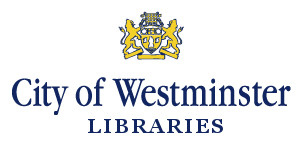I want to
![]()
Books and reading
Book lists and awards
![]()
24/7 Library
![]()
Subject resources
![]()
More from your library
Housebound? The Home Library Service will come to you
![]()
What is Bibliotherapy?
Bibliotherapy, or the therapeutic value of reading, is simply the use of reading to help people in any situation in life. It can take many forms, from reading about someone who has gone through a similar experience to you, to choosing a book because you’re looking for some tips on how to unwind and relax.
Here are some examples of bibliotherapy in Westminster: Share a Book groups, Mood-boosting Books and Books on Prescription.
Share a Book Reading Groups
A reading group with a difference! Over tea and biscuits, the group is read aloud to by a trained facilitator, breaking regularly to allow the group to give their immediate response to what has been read. The group uses these breaks to say as much or as little as they like about the poem, play, novel or short story which has been read. As well as being a pleasurable experience and a great chance to socialise with others, members of reading groups like these often say they benefit from improved confidence and wellbeing.
Check the Book Groups page to find out if we have a Share a Book Group at your library.
Mood-boosting Books
Getting stuck into a good book can really unwind your mind. Westminster Libraries were involved in BBC Headroom’s search to put together a list of up-lifting books. Together with similar feedback on other books from four more reading groups our responses contributed to the final selection of books. Take a look at the full Mood-boosting Book list above.
Books on Prescription
What is Reading Well Books on Prescription?
Self-help books can help people understand and manage common conditions, including depression and anxiety. Individuals with mild to moderate mental health conditions often use self-help books as an early intervention or additional treatment. The Books on Prescription scheme includes a core list of self-help books, which are based on Cognitive Behavioural Therapy (CBT) to help individuals understand and cope with a range of common conditions.
Which topics does the Books on Prescription scheme cover?
Anger, Anxiety, Binge Eating/Bulimia Nervosa, Chronic Fatigue, Chronic Pain, Depression, Health Anxiety, Obsessions and Compulsions, Panic, Phobias, Relationship Problems, Self-Esteem, Social Phobia, Sleep Problems, Stress and Worry.
How does Reading Well Books on Prescription work?
Books can be recommended by your GP, psychological well-being practitioner or another health professional using the form attached to the user guide – you can find this in your local library or your local GP. Individuals can then take their book recommendation to the library, where the book can be borrowed for free. If the book is not available, it can be reserved for you and the library will let you know when it arrives. Some people may also use the self-help books independently as a first step in seeking help.
What if I am not a library member, can I still borrow a book?
Yes you can. Joining is quick and easy when you go to the library to collect the book. You will be asked to complete a short membership form and provide one form of identification such as a driver’s licence passport or bank card. If you need any assistance to complete the membership form or borrow a book, the library staff will be available to help you. Further information can be found here: Joining the library.
Can books really help?
Research shows that reading improves mental well-being, and reduces stress levels by 67 per cent (Mindlab International, 2009). Also, there is strong evidence from the National Institute of Clinical Excellence (NICE) that self-help reading can help people with common mental health conditions, such as anxiety and depression. For more information about this research visit the Reading Agency website. The books provide helpful information and step-by-step self-help techniques for managing common conditions, including depression and anxiety. Although books can sometimes work on their own, research has shown that self-help approaches work best when there is support from a health professional. The books on the scheme have all been recommended by experts. They have been tried, tested and found to be useful.
What if the book doesn’t help?
If you find that the book you are reading is not helping, you should contact your GP or health professional for further advice. You can also visit: www.iapt.nhs.uk/services and www.nhs.uk/moodzone
How can I tell you what I think of the scheme or the book I borrowed?
We would like to hear from you about your experience with the scheme and the recommended books, as this will help us to improve. You can contact us by email: kgielgud@westminster.gov.uk for information or questions about the scheme.

